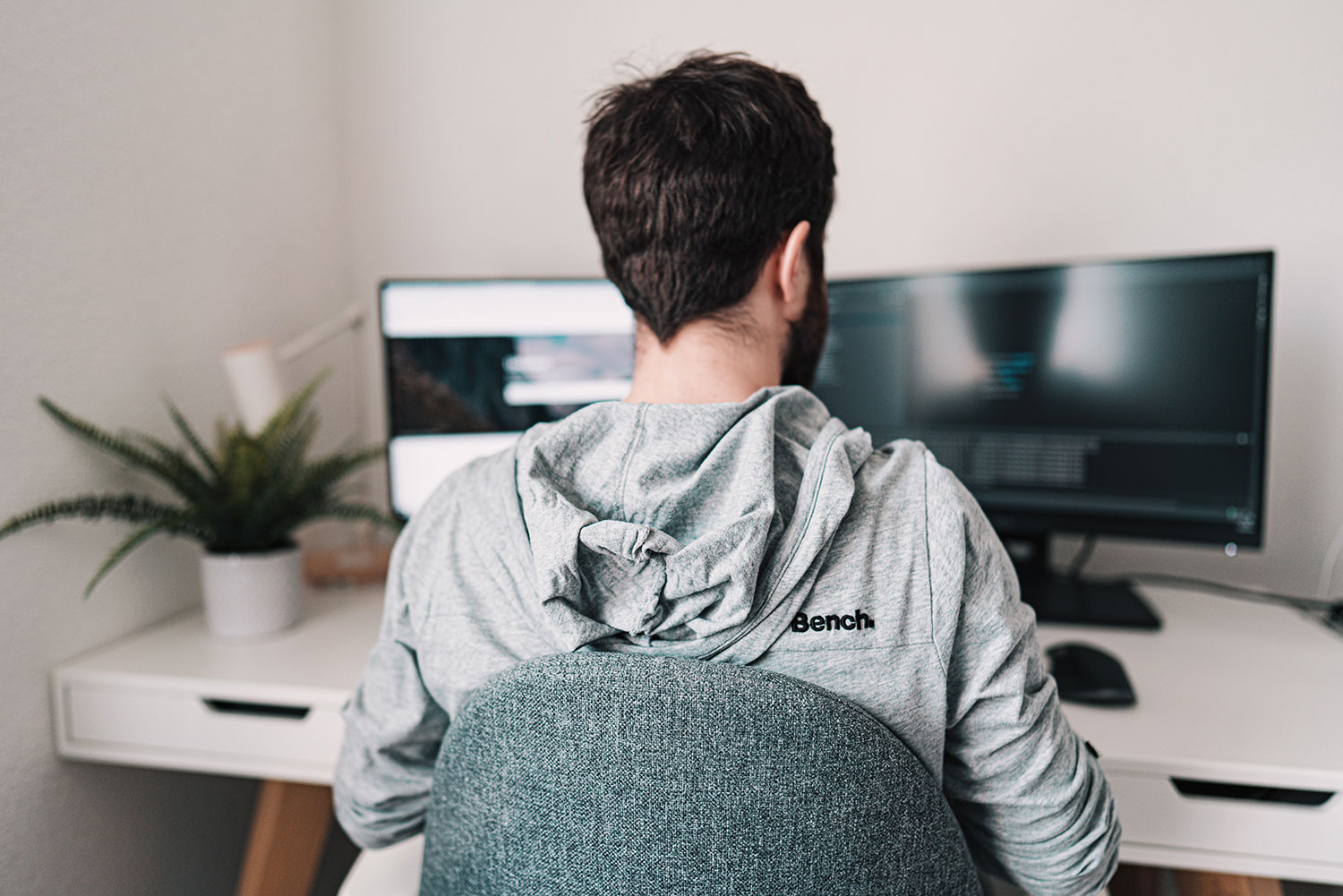 New research from three DePaul DBA students examined the different ways people adjusted to working remotely during the height of the pandemic.
New research from three DePaul DBA students examined the different ways people adjusted to working remotely during the height of the pandemic.
Three students in the
Doctorate in Business Administration (DBA) program at DePaul – Mona Pearl, Despina Guthrie and Ian Nelson – teamed up last year to do a research project titled, “Work and life for remote employees during COVID-19: the role of motivational disposition and organization culture.” Their research examined the different ways people adjusted to working remotely during the height of the pandemic. They presented their findings at the Midwest Business Association Conference in Chicago in March 2022.
 Mona Pearl
Mona Pearl
“We’re all programmed a little differently, so it was interesting to see how people reacted to the crisis based on the type of motivational need they had and the type of organizational culture they were a part of at work,” says Pearl, who also is an instructor in the Department of Management & Entrepreneurship at the Driehaus College of Business.
There are several needs-based theories of motivation, which basically assert that a person’s motivation stems from a desire to fulfill a certain set of needs. As part of their study—which involved a survey of nearly 250 employees in various companies and industries—Pearl, Guthrie and Nelson looked at four motivational needs: the need for achievement, the need for affiliation (having a sense of connection with an employer), the need for autonomy, and the need for segmentation (desiring a separation between work and personal life).
The group also looked at three types of corporate organizational cultures: clan culture (which emphasizes close connections amongst employees), market culture (a highly competitive environment that’s typically driven by numbers), and adhocracy culture (which favors flexibility, innovation and agility to get the job done).
They also assessed how personal life enhanced work and how work enhanced personal life, based on how a person’s motivational needs intersected with corporate culture.
For example, one of their hypotheses was that people with a higher need for autonomy felt that their personal lives were enhanced by work after they were allowed to be remote.
A correlation emerges between achievement-motivated employees and their ability to adapt
One interesting finding from their study, notes Pearl, is that people with a higher need for achievement seemed to adjust better to working remotely during COVID. “It could be because people with achievement motivation are going to achieve no matter what the circumstances. These people are less likely to allow any interruptions or distractions to interfere with work, and more likely to create a situation that would set themselves up for success,” says Pearl. “Because this research is quantitative, we don’t exactly know how they did this. But it would be an interesting follow-up to this study to find out.”
“People with a high need for achievement tend to get a bad rep, but we saw them in a different light in this study,” continues Pearl. “What we found is that high achievement people are more self-driven and generally just more motivated and resilient. They were willing to be more flexible, which is kind of interesting as it provides deeper insights into the world of high achievers.”
Study offers insights for companies as well as employees
One of the biggest things companies can learn from this study, according to Pearl, is that people have different motivational needs and different environments in which they can thrive. Essentially, one size does not fit all. Many companies found that their workforce remained productive and successful in a remote environment. As a result, they embraced hybrid working models as the threats of COVID-19 waned, and many other offices didn’t go back to a physical office and changed their structure all together.
“Another key takeaway I think is that individuals should consider if their motivational needs match a company’s culture when they are searching for a new employer,” says Pearl. “The pandemic revealed to many people that it is possible to have a job that enhances your personal life and vice versa. And I think many people realized during COVID that they need more non-work time to feel more motivated at work and happier in their personal lives. One of the revelations to come out of this experience may even be that people don’t have to choose between their work and non-work lives, but in a way can have it all.”
“The pandemic has revealed the limitations of remote work and the benefits it can provide,” adds Guthrie. “It broke through various technological and cultural barriers, which had prevented people from working remotely in the past. According to the research, over half of those who have switched to working from home say that they rarely or never worked from their home before the pandemic. On the other hand, most of those who have switched to working from home say that it's easier to maintain a consistent work-life balance.”
The DBA program at the Driehaus College of Business is a research-intensive program for academics and executives that provides students the opportunity to learn and apply research skills and explore data-driven solutions to business issues. During the first year in the program students begin working with a research advisor on a
project, which they later present to faculty and their peers.
Learn more about the DePaul DBA